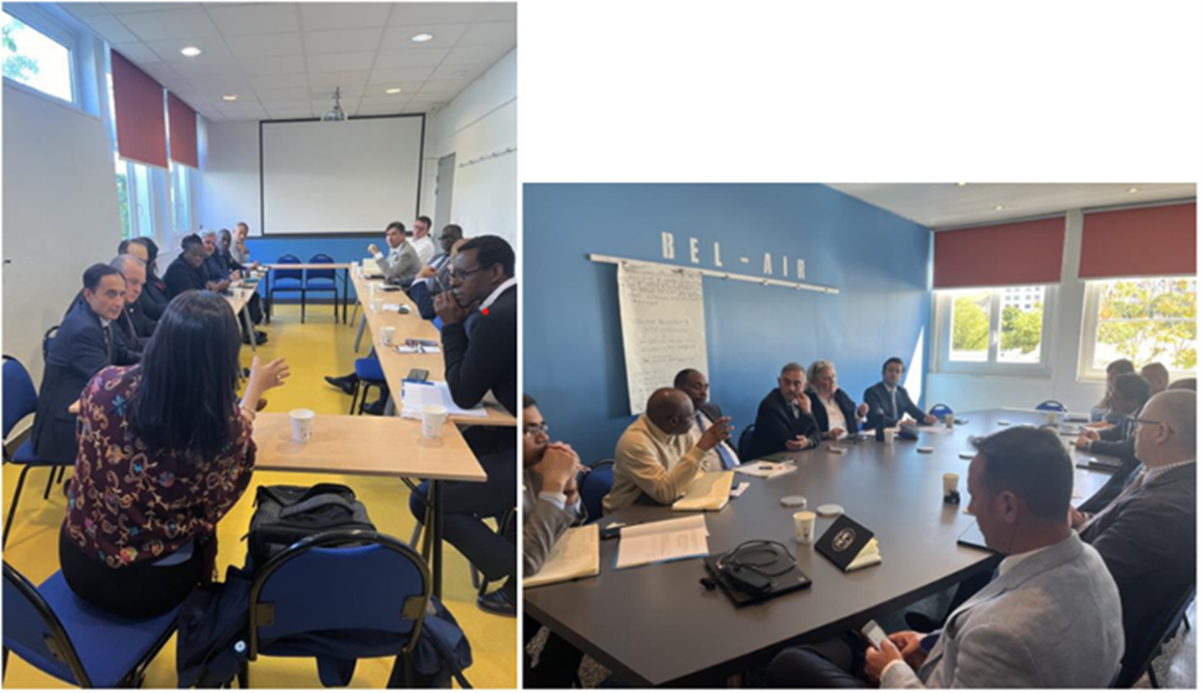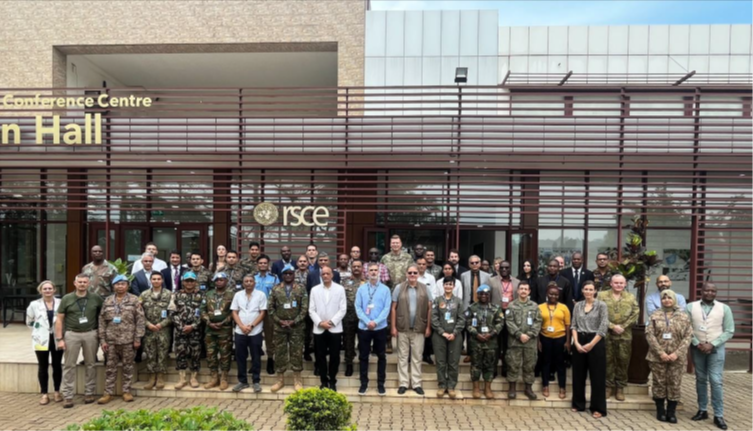Improving Security for Peacekeepers by conducting workshops with leadership from Peacekeeping missions together with UN leadership and subject matter experts under the umbrella of the “Action Plan for Improving Security for Peacekeepers”
Synopsis
Objectives
The project aims to bring together the senior leadership of UN Missions in a unique forum where they discuss only the security of the Peacekeepers, an update on the Action plan implementation, identify new and emerging threats and mitigation measures, and share best practices.
Components
Workshops for field operations Senior leadership, UNHQ representatives and experts.
Main achievements
Two workshops were conducted in France and Uganda, with a total of 99 participants (out of which 61 were funded by the project).
The 6th workshop was held in Paris (France), 23-25 April 2024, with a total of 47 participants. It brought together Senior leadership from five missions, namely the United Nations Multidimensional Integrated Stabilization Mission in the Central African Republic (MINUSCA), the United Nations Organization Stabilization Mission in the Democratic Republic of the Congo (MONUSCO), the United Nations Mission in South Sudan (UNMISS), the United Nations Interim Force In Lebanon (UNIFIL) and the United Nations Interim Security Force for Abyei (UNISFA) such as Chief of Staff, Force Commander, Police Commissioner, Director/Chief of Mission Support; as well as and from Headquarters offices and departments, including the representatives from the Office for the Peacekeeping Strategic Partnership, the Deputy Military Adviser and the Implementation Support Team from the Department of Peace Operations (DPO), the Uniformed Capabilities Support Division in the Department of Operational Support (DOS), as well as other relevant experts across departments. 19 new actions for the Action Plan were agreed.
The 7th workshop was held in Entebbe (Uganda), 3-5 December 2024, with a total of 52 participants. It brought together subject matter experts from the six participating missions (UNMISS, MONUSCO, MINUSCA, UNIFIL, UNISFA and United Nations Mission for the Referendum in Western Sahara (MINURSO)) and made mission-wise action plans on how to implement the agreed actions on Learning to improve security and Casualty evacuations (CASEVAC). It focused on working level subject matter experts involved in implementing already agreed recommended actions for two topics, including CASEVAC and Learning to improve security.
Across the two workshops, topics included UN Status of Forces Agreement violations, ammunition management, learning to improve security, Casualty evacuations (CASEVAC) Integrated base defense and United Nations Multidimensional Integrated Stabilization Mission in Mali (MINUSMA) security best practices challenges, through former MINUSMA leadership briefings and discussions about lessons learned and best practices on for instance, situational awareness, improvised explosive devices, uncrewed aircraft systems, attacks (direct, indirect, complex).
Impact
These workshops have resulted in the formation of several working groups, the development of new policies, and changes in equipment. They continue to play a key role in identifying current and emerging threats, as well as recommending practical actions through the Action Plan for Improving the Security of UN Peacekeepers. Uniformed personnel remain the most frequent victims of malicious acts in peacekeeping missions.
Pictures

Session, 6th workshop on the Action Plan for “Improving the Security of UN Peacekeepers”, Paris, France, from 23-25 April 2024

7th workshop on the Action Plan for “Improving the Security of UN Peacekeepers”, Entebbe, Uganda from 3-5 December 2024
